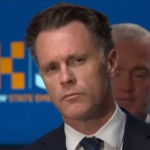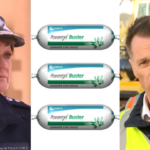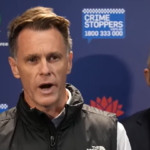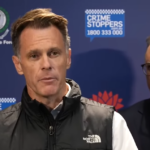Police Advised Premier “Very Early On” That ‘Antisemitic’ Caravan Bomb Plot Could Be a Hoax
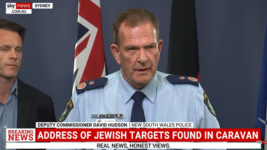
On the first day of parliamentary hearings into whether recent hate crime and antiprotest offences were enacted in bad faith, concerns around the New South Wales premier and police minister being aware that a caravan full of explosives the laws were largely predicated upon was potentially a hoax yet went on to pass the legislation based on the idea it was genuine regardless, were certainly not dispelled.
Following 10 March 2025, Australian federal police revelations that the 19 January-discovered caravan full of explosives and a series antisemitic attacks across Greater Sydney had been fabricated, the NSW upper house determined to establish an inquiry into why premier Chris Minns and police minister Yasmin Catley progressed three bills responding to crimes if their authenticity was in doubt.
The 7th April hearing of the Select Committee on the Relationship between the Dural Caravan Incident and Parliamentary Debates on Legislation, mainly involved questions put to NSW police deputy commissioner David Hudson, along with others being asked of deputy commissioner Peter Thurtell and police commissioner Karen Webb.
And while the NSW Police Force had requested that Monday’s hearing be held in camera, or in private without any press or spectators, it was decided the initial four hours would be held in public, and it then became clear that the premier and the police minister must have had some idea of the serious doubts senior NSW police were holding in respect of the caravan incident early on.
From an early point
Deputy commissioner Hudson told the inquiry on Monday that the NSW Police Force was notified of a caravan full of explosives, and an accompanying note listing potential Jewish owned targets, found on a property in the northwestern Sydney suburb of Dural on 19 January. And Hudson said he was suspicious as to whether it might be “a manipulation of the justice system” from “quite early on”.
“At my briefings, which were limited, with the premier, I expressed my suspicion over the motivation behind it from very early on,” Hudson said. He also recalled briefing minister Catley on the caravan on 21 January, at which point the premier was not present, but he further considered he’d already briefed Minns by that stage. The deputy told the inquiry he’d reconfirm these dates at a later point.
Hudson also explained that at this time the AFP was receiving information from an informant suggesting that the caravan was a genuine antisemitic terror threat, and therefore, the federal police had to continue to investigate the incident as a likely legitimate terrorism plot, regardless of any evidence that raised doubts.
Deputy commissioner Thurtell told the inquiry that he’d briefed both the premier and the police minister on the caravan incident on the morning of 20 January separately over the phone. He was factual in his briefing and didn’t raise any doubts about its legitimacy, while police commissioner Webb recalled briefing the premier on 23 January.
The public wasn’t told of the caravan on discovery. But following a press report after details were leaked, Minns and Hudson held a 29 January presser to provide further details, and committee members questioned why Minns, who’d been made aware of the doubts, then referred to a potential “mass casualty event” and remarked, “There’s only one way of calling it out and that is terrorism.”
The unravelling of the truth
The Dural incident inquiry is attempting to ascertain whether three pieces of law-and-order legislation that crack down on personal freedoms were progressed by the premier and the police minister amongst a climate of fear caused by a supposed caravan terror plot that they were aware senior police carried serious doubts over, yet they rushed and bullied the laws through parliament.
The inquiry further ascertained that the senior NSW police officer at the head of the AFP investigation was informed on 10 February that the informant suggesting the caravan was a terror incident had staged the crime himself in order to gain a personal advantage in negotiations with police about his own case, and the NSW officer had to then sign a nondisclosure agreement.
The AFP officially discredited the police informant on 21 February, as it was discovered he was the mastermind behind the staging of the caravan incident and 13 other major so-called “antisemitic” graffiti and firebombing attacks across Greater Sydney that commenced on 17 October 2024 and ended on 2 February this year.
The mastermind behind the attacks had been seeking to use his knowledge of the crimes as a bargaining chip when police were to charge him over a separate set of crimes. But this finding was not announced more broadly until 5 March, as investigators were continuing to determine whether the low-level crims who committed the crimes could still be charged with terrorism.
Hudson was informed that his doubts were correct on 21 February, at which point it was apparent that the AFP investigation and the NSW police antisemitism inquiry could be merged, as the crimes were all linked and staged to portray that the city was undergoing an “antisemitic” crimewave. The deputy informed the police minister on 7 March, and the public were told on the 10th.
A hard crisis to let go of
NSW Greens MLC Sue Higginson told Sydney Criminal Lawyers in February that the NSW premier had “bullied and rammed through” the three bills that were passed in response to “recent incidents of antisemitic behaviour” that turned out to be an elaborate criminal hoax to gain an advantage over state law enforcement.
The Crimes Legislation Amendment (Racial and Religious Hatred) Bill 2025 had been passed on 20 February and the Crimes Amendment (Places of Worship) Bill 2025 and the Crimes Amendment (Inciting Racial Hatred) Bill 2025 were passed on 21 February, which was the day the AFP officially declared the crimes were a hoax, but two weeks before it went public with the information.
However, in the wake of the entire “antisemitic” crimewave being declared a “fabricated terror plot”, the Minns government and the Liberal opposition are continuing to insist that the city is under the grips of a deluge of antisemitism and the premier is refusing any suggestion that there might be reason to reconsider whether the criminal laws he’s just passed should stand.
Indeed, police minister Catley told Higginson during 12 March budget estimates that “from July 2023 until January 2025 there have been more than 700 antisemitic events and incidents and arrests in this city”.
But it also came to light during Monday’s inquiry hearing that only 41 percent of these incidents were determined to be antisemitic, which was amongst a broader range of 700 potential hate crimes reported to police over the time frame that the police minister had cited, and of those remaining, around 15 percent were identified as Islamophobic, with the rest being labelled as “other”.


